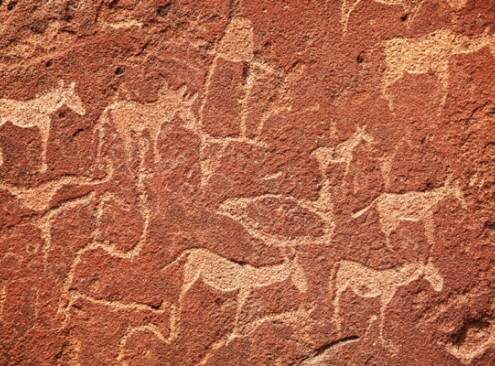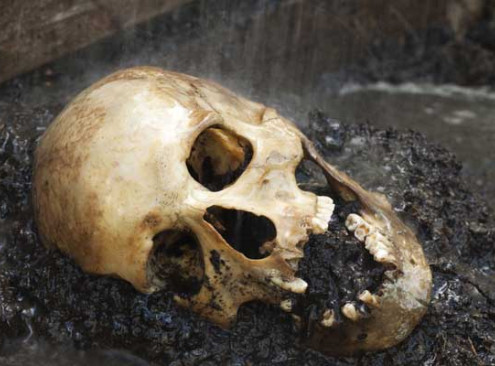© Pint of Science, 2026. All rights reserved.
DNA is, was and will be here. With current technologies, we can see it inside a living cells, and look into the past to study the Black Death or how we domesticated horses. Will it allow us to predict our future?
Catching Our Genome in Action!
Ibrahim Cissé
(Managing Director at Max Planck Institute of Immunobiology and Epigenetics, Freiburg, Germany)
We will discuss the latest efforts in our laboratory to develop highly sensitive methods of microscopy, to go directly inside living cells and uncover the behavior of single biomolecules as they affect their function in transcription. Transcription is the first step in gene expression regulation, during which genetic information on DNA is decoded into RNA transcripts. Methodologically, the so-called live cell single molecule and super-resolution techniques – that break the optical diffraction limit– are revealing with unprecedented spatial and temporal resolutions, novel emergent phenomena inside the living cells. We will discuss our recent discoveries on highly dynamic biomolecular clustering, and phase transitions in vivo.These discoveries are challenging the ‘textbook view’ on how our genome (DNA) is decoded in living cells.
Elucidating the origins of horse domestication with ancient DNA
Antoine Fages
(Postdoctoral researcher at Zoological Institute, University of Basel)
Among domesticates, the horse is probably the animal that impacted human history the most. Domestic horses provided us with fast transportation across large distances, which in turn promoted the spread of languages, cultures, religions and empires across Eurasia. Yet, the origins of horse domestication have remained mysterious up until very recently. In this presentation, I will give a brief overview on how ancient DNA retrieved from bones and fossils of both wild and domesticated horses from the past millennia informed us about where and when humans started to domesticate horses, and how domesticated horse have then spread across the continent.

Pathogen in history: Uncovering our common past using ancient DNA
Verena Schünemann
(Professor at Integrative Prehistory and Archeological Science (IPAS), University of Basel)
Pathogens have influenced our daily lives though our history. Here we will ancient DNA-based genome-wide studies, which allow us for tracing back pathogens though time and explore our common past. We will look at two major threats in the medieval time period, plague and leprosy, and will use them as examples to visualize the different possibilities of ancient DNA research including the identification of causative agents of historical pandemics.

Map data © OpenStreetMap contributors.